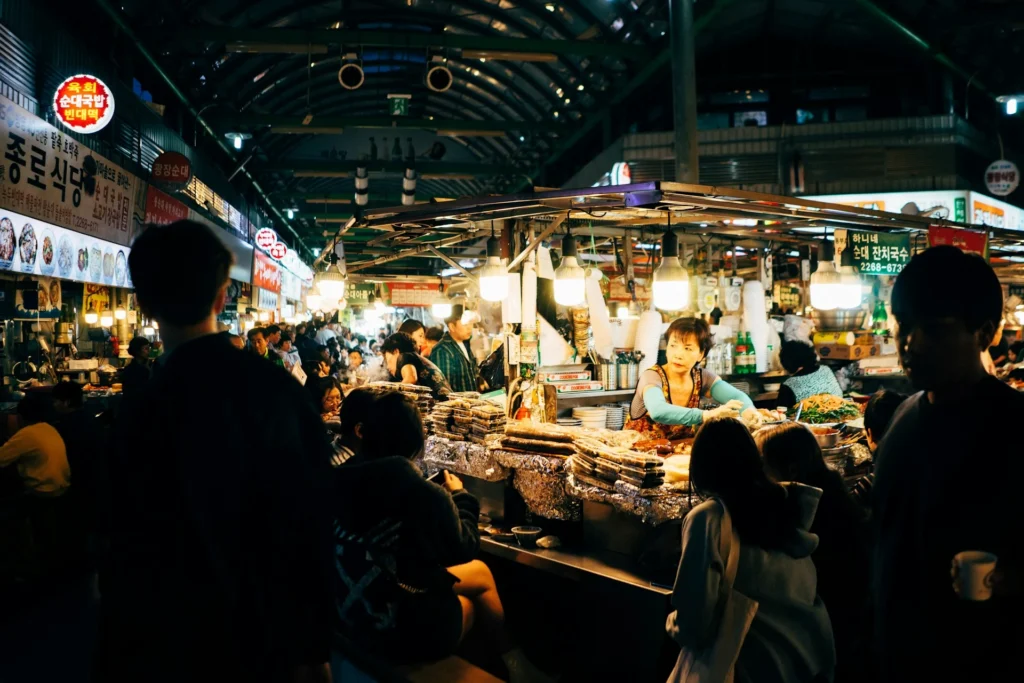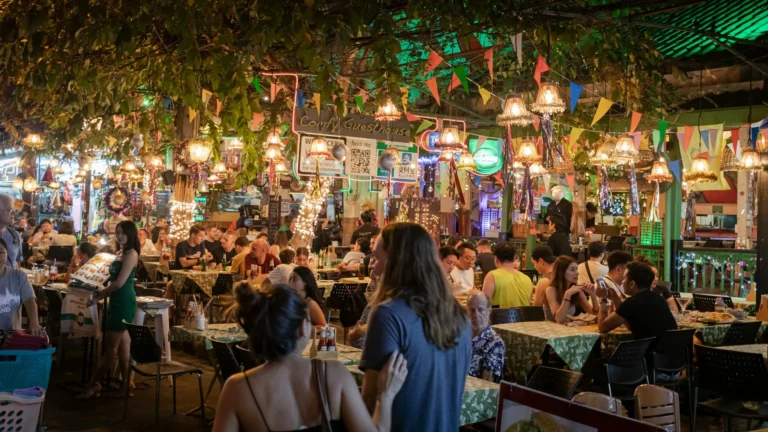Sustainable Foodie Travel: How to Enjoy Food Responsibly
Food tourism that is sustainable is not just about satisfying your taste buds; it’s about making thoughtful decisions in favor of the environment, local communities and cultural heritage. Through adopting eco-friendly practices, culinary enthusiasts can enjoy their preferred dishes while reducing global warming, hence more equitable food system. In this complete guide, we shall cover sustainable principles of foodie travel and provide useful tips for responsible eating throughout your trips.
01. Understanding Sustainable Foodie Travel
1.1 What is Sustainable Foodie Travel?
Sustainable foodie travel means enjoying meals by minimizing destruction to the planet and supporting local communities. This requires finding opportunities to eat out in restaurants where sustainability features prominently as a concept in the form of reasonable practices or locally grown ingredients. By choosing sustainable foods, tourists can assist with conservation efforts, reduce release of greenhouse gases and support decent jobs in relation to farming activities.

1.2 Is it important to travel sustainably, as a foodie?
The significance of sustainable foodie travel cannot be understated. This is because such type of travel helps protect the environment, conserve cultural heritage and promote economic development in local communities. Travelers who are mindful about their choice of foods can help maintain available natural resources, conserve ancient cooking methods and give small scale producers and artisans more bargaining power. Moreover, this type of vacationing promotes global food concerns awareness among people while also making individuals understand why they should eat in a particular way.
02. Destinations for Sustainable Foodies
2.1 Locally Sourced Restaurants
Such movements benefit traveler’s interests due to fresh local foods that support farm-to-table dining experiences as well as the local farmers and producer’s foundation stone. Almost all its eating places throughout the world have adopted this approach where they get their ingredients directly from farms within reach thereby promoting regionality in their menus. This is a good opportunity for travelers to learn how food is connected with land by supporting sustainable agriculture when they visit farm-to-table restaurants.
Visiting farmers’ markets and food markets is another great way to indulge in sustainable foodie travel. These are lively places where you will find plenty of fresh produce, homemade products, and local specialities giving travellers a chance to interact directly with farmers and manufacturers. Travelers can help support small-scale agriculture by purchasing food from farmers’ markets, decrease food miles, and savor the genuine flavors of the area.
2.2 Culinary Tours and Workshops
Culinary tours and workshops are a favorite pastime among food enthusiasts who want to be part of indigenous gastronomy. Whether it is expert chefs teaching cooking classes or guided tours through food markets and artisanal food producers, these experiences allow travelers to have a deeper understanding of culinary traditions and techniques specific to each place. By participating in culinary tours and workshops, travelers can gain important insights about sustainability in relation to food while enjoying firsthand involvement with local ingredients.
03. Making Sustainable Food Choices
3.1 Choosing Local and Seasonal Ingredients
One of the basic tenets of sustainable foodie travel is to choose locally and seasonally grown ingredients whenever possible. Whenever one chooses ingredients that grow in their respective times of the year, then it follows that they are able to avoid negatively impacting on the environment. Another benefit of choosing local and seasonal ingredients is that such foods are usually fresher hence more flavorful, thereby reflecting the character of a place.
3.2 Minimizing Food Waste
As another important part for sustainable foodie travel, minimizing food waste is critical. The size at which portions are served should be regulated, travelers should refrain from ordering too much in restaurants as well as engaging their creativity on leftovers. Also, helping these restaurants and eating places that have implemented environmental friendly waste management can help reduce environmental impacts associated with eating out
04. Embracing Sustainable Foodie Travel Practices
4.1 The promotion of sustainable tourism initiatives
Travelers can therefore participate in responsible tourism in terms of food by backing such tourist initiatives that take care of the environment, keep the culture alive and contribute to community growth. Eco-friendly culinary tours, farm-to-table experiences and volunteer programs for travellers interested in actively participating in local food systems are usually organized by responsible travel organizations.
4.2 Engaging with Local Communities
To promote sustainable foodie travel, it is crucial to engage with local communities since these people have much knowledge regarding their land. For example, a traveler will be able to get more cultural insight about the importance of meals if he or she interacts with local farmers, chefs and artisans. Additionally, visitors can make positive contributions through support for community based schemes as well as social entrepreneurship.
05. Conclusion
Through this paper, I have argued that sustainable foodie travel allows us to experience global gastronomy firsthand while at the same time boost our economies and protect our planet. Hence when they practice healthy eating habits that are eco friendly while on their trips ,tourists will relish great tasting dishes that are also ethical. Whether they dine at restaurants which serve farm-to-table meals or visit food markets and attend cooking classes
06. Frequently Asked Questions
01. How can I find eco-friendly meals while travelling?
Restaurants that prioritize local products, support sustainable farming practices and reduce food wastage.
02. What are the advantages of taking part in culinary tours and workshops?
Culinary tours and workshops present a chance to participants to know local food cultures, backing up small scale producers and actually cooking yourself.
03. How can I be an eco-responsible foodie when travelling?
Choose plant-based options, avoid disposable plastics and patronize eateries with sustainable waste management systems.
04. Why should we care about supporting local farmers and producers when we travel?
Such course makes sure that indigenous cultures continue to exist by preserving ancient foods production techniques among others, leads to good returns for rural people from their labor as well as contributing to biodiversity in food systems.
05. What are some ways for us to interact with local communities while on our travels?
Visiting farmers’ markets; enrolling in cookery classes; backing community based food initiatives.






